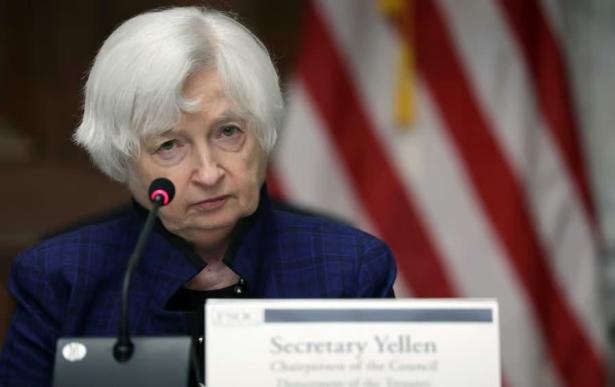As if the planet weren’t burning or on the cusp of nuclear war, the White House, the Treasury, Congress, and the press have fired up another round of Washington’s favorite parlor game—Debt Disaster!™ Over at Vox, Dylan Matthews has explained the half-hidden politics. Both sides need a win, he reasons. Neither has the votes. So the search is on for an outcome both can live with. President Biden’s nonnegotiable demand is for a clean increase in the debt ceiling. House Speaker Kevin McCarthy’s demand is for big cuts in federal spending—to which Biden has no principled objection. These goals are not incompatible, which means that both will be met. The rest is stagecraft, timing, optics, and spin.
With a recession looming, a year of spending cuts—to health care, food stamps, unemployment insurance, aid to states and cities—is just the ticket to deliver the Senate back to Mitch McConnell and the presidency to Donald Trump. McCarthy knows this. Does Biden? Probably. But with his approval ratings hardly better than Gerald Ford’s or Jimmy Carter’s, perhaps some key players on his team are less focused on the election than on preening for their next job.
Matthews might be right here, but he falters on some other issues, as set forth in these pages back in January. To restate a few key points: First, as a matter of law, the US Treasury is obligated to make payments. The debt ceiling does not override this obligation. Treasury Secretary Janet Yellen has no legal discretion to stop payments or to pick and choose which to make and which to defer. If payments stop going out, she will be breaking the law—and her oath of office. For that, she could and should be impeached.
The debt ceiling is also a law. It orders the Treasury not to stop making payments, but to stop issuing securities past the $31.4 trillion limit. Yellen might also be impeached for ignoring that limit and issuing more securities anyway, which would violate the Constitution, while her continuing to make payments would not. But no jury in America would ever convict, most certainly not the US Senate.
Breaching the ceiling is also unnecessary. The trillion-dollar platinum coin would solve the problem—with no additional borrowing and no breach of the debt limit. Otherwise, would the Federal Reserve honor US Treasury checks if no securities were issued and there were insufficient funds in the Treasury General Account? Would the checks bounce?
Possibly! If they did, the bounced checks would be returned to the banks, which would know perfectly well that the issuer is the sovereign US government. Would they refuse to credit the checks? I doubt it. Those checks-in-limbo would be assets, like any other—and excellent collateral for short-term loans.
But suppose the bankers, perhaps following some regulation, did refuse to credit Treasury checks that, because of the debt ceiling, were temporarily failing to clear. And suppose this went on for more than a few days. The consequence would be a wave of real defaults—of debt defaults in the private sector. Not the public sector! But business loans, mortgages, and car and student loans would go unpaid. Who, initially, would be hit by that? Obviously, the banks. Even without a federal debt ceiling mash-up, the US banking sector is not exactly rock-solid right now. Except for a few headline cases, bankers would have to be even more suicidal than usual to refuse to credit those “bad” checks.
Long story short: Biden and Yellen are playing up the debt drama not because we face some financial Armageddon, but to make an empty victory at the last minute seem like a big deal. When it happens, everyone involved will heave a big sigh of relief. Debt Disaster!™ will be packed up and put back on the shelf, until the impressionable grandchildren come to visit again.
For the economy, what matters is what they give away to McCarthy, in the budget and appropriations processes, to get their little success. For the election, what matters is how deep the cuts are, who suffers—and how those affected react at the polls. That’s the poisoned apple in another children’s story. Just a few bites now could put the Democrats to sleep for 2024—and erase what remains of the Biden agenda.
James K. Galbraith holds the Lloyd M. Bentsen Jr. Chair in Government/Business Relations at the Lyndon B. Johnson School of Public Affairs, the University of Texas at Austin. He is a former executive director of the Joint Economic Committee in the US Congress.
The Nation Founded by abolitionists in 1865, The Nation has chronicled the breadth and depth of political and cultural life, from the debut of the telegraph to the rise of Twitter, serving as a critical, independent, and progressive voice in American journalism.
Please support progressive journalism. Get a digital subscription to The Nation for just $24.95!


Spread the word